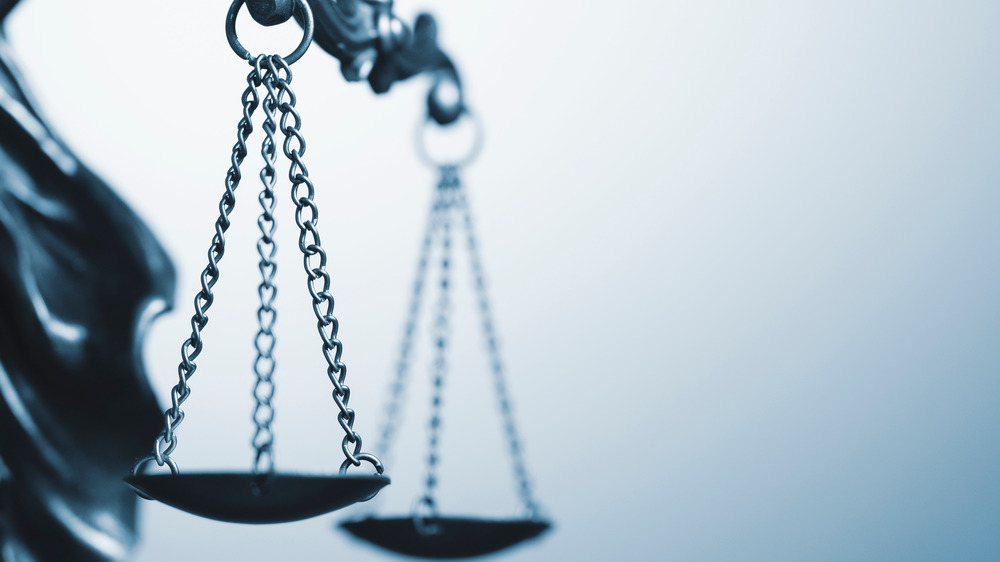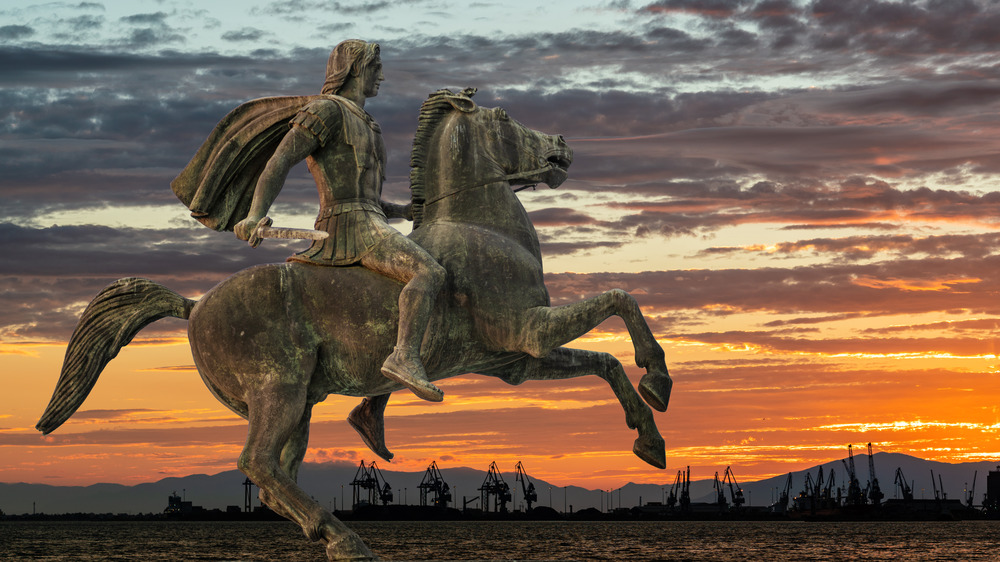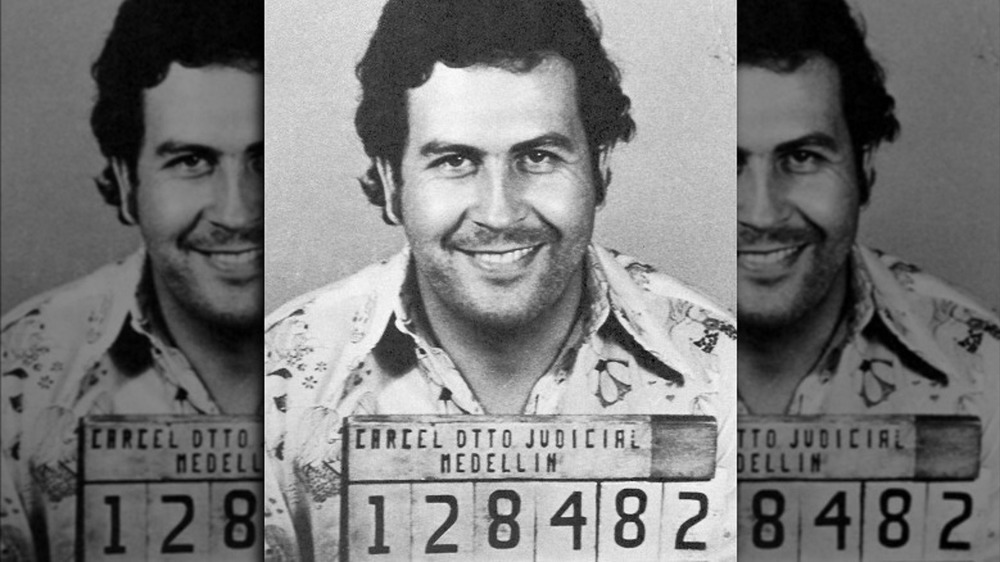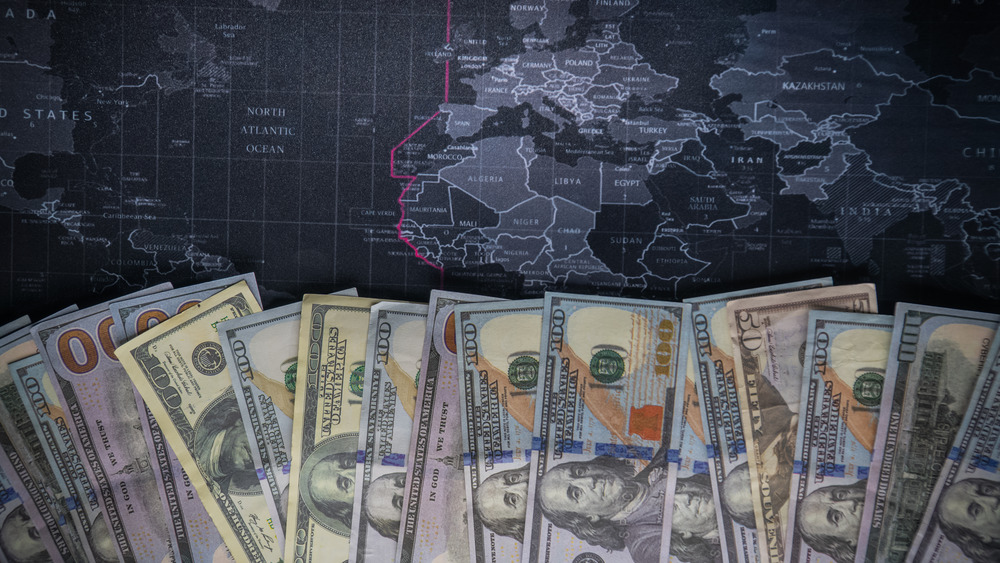The Most Powerful Criminal In History
Let's be honest. It's a little weird that you can just Google known criminal organizations and up pops a list of "top 5" crime syndicates on Fortune, as if we're talking about favorites for the upcoming Oscars, or homemade vegan burrito bowl recipes. But such is the power of criminal organizations — and their leaders — that their renown, control, and sovereignty outstrips legal bodies' capabilities to apprehend them.
Take the Japanese yakuza, who despite being on the decline in terms of recent membership numbers, have business cards, known street addresses, and a corporate onboarding structure, per Foreign Policy. In Russia, Semion Mogilevich, the "Boss of Bosses," is responsible for countless financial crimes, to the tune of millions, but was removed from the FBI's most wanted list in 2015 because he just lives in the open without fear of any extradition treaty, as the Mob Museum says. In the U.S., mafia figures like Al Capone and John Gotti are legendary.
All of these cases illustrate a salient fact about criminals: The most powerful among them are not serial killers targeting street-level citizens with violent crime, but those who operate on a vast, economic scale, like robber barons or law-flouting corporations. Money laundering, racketeering, fraud, drug and firearms trafficking: These are the crimes of the truly powerful. Perhaps this is part of the reason why the general public seems obsessed with criminals, as every single police drama or Netflix documentary about murderers and kingpins is hungrily gobbled up.
Heads of state and dictators are among the worst historical criminals
No matter that we define a "criminal" as someone who disobeys the law, history has been full of rulers and legally legitimized heads of state who seem far more murderous and monstrous than someone who artificially inflates stock market prices by concocting fake financial records (like the aforementioned Mogilevich). Such individuals, and government-sanctioned groups, have been responsible for some of recorded history's worst tragedies, no matter how such people have been sometimes romanticized, and no matter how those actions might have shaped history for our modern benefit.
Alexander the Great was responsible for deaths up to 3.5 million as a result of his conquests, per Quora. England's East India Trading Company was responsible for ruining the lives of millions in India and across the globe, as the Guardian outlines. Emperor Qin Shi Huang's building of the Great Wall alone — aside from his unification of China — caused the deaths of thousands of slaves, per Interesting Engineering. Syria's absolute madman and tyrant Bashar al-Assad has killed nearly 200,000 of his own citizens since 2011, as the Syrian Network for Human Rights explains. The Jewish Virtual Library says up to 6 million were killed in the Nazi-funded (a government party, remember), Hitler-led Holocaust. Genghis Khan and his Mongols, per History, slaughtered nearly 40 million people.
Aren't all of these individuals criminals by any common, human sense of the word? Among such company, who could possible be considered "the most powerful"?
The 'King of Cocaine' reigns supreme
We need to return to our original definition of criminals as economic powerhouses to make any reasonable comparisons. Through a combination of criminal enterprises and brute, mafia-like, strongarm tactics (homicide, assault, manslaughter, robbery, kidnapping, etc.), such individuals affect millions of lives even if they aren't literally riding a horse into town and cutting off people's heads like Genghis Khan. By this definition, one person definitely stands head-and-shoulders above the rest: Pablo Escobar. That's right: the subject of Netflix's Narcos.
Pablo Escobar wasn't just a high-ranking, illegal substance-trafficking drug lord. In a 2016 interview on YouTube with Pedro Pascal (pop culture's future Mandalorian, who played DEA agent Javier Peña in Narcos) comedian Stephen Colbert called Escobar "the Bill Gates of cocaine." This description of Escobar's global dominance and power is completely accurate. He was worth, at his height, $30 billion dollars, per Cheat Sheet. Business Insider says that he would spend $2,500 a month just on rubber bands to hold his $420,000 earned per week in cash. He controlled 80 percent of the world's flow of cocaine, and would write off $2.1 billion a year because of water and rat damage to bills, and not care. His son Juan Pablo Escobar, who changed his name to Sebastián Marroquín, said in the Colombian magazine Don Juan that Escobar once made a fire with $2 million to keep them warm when running from the law.
Escobar was in Forbes' first global billionaires edition
Money alone may not account for Escobar's power during the 1980s and 90s, but it says a lot about him and his historical relevance because he wasn't a head of state. He was just a guy born to a "poor Colombian farmer," as The Independent says, who by the age of 35 was one of the richest men in the world. Believe it or not, he was in Forbes' first "billionaires" issue in 1987, one of only 100 people, right on page 153 under the subheading "Colombia," smiling in a white suit like any other businessman.
The article, readable on Forbes, describes Escobar as a "master of public relations" who worked as a "smuggler, enforcer, and bodyguard" before branching off and "reinvesting" through drug trafficking. The 5-foot, 6-inch, 300-pound man was "given to rugby shirts, chino pants and sneakers," and was a "prime example of a Colombian paisa – an aggressive, unsentimental country hustler." He was notorious in the U.S., where he was wanted for "cocaine marketing, money laundering and contract killing." At the same time, Escobar built housing for the poor in Colombia, constructed 70 soccer fields, opened a zoo (for which he was brought up on illegal exotic animal transportation charges), and eventually offered to pay off Colombia's entire national debt (provided he receive immunity).
Escobar stayed on Forbes' billionaire list until 1993, when he was shot in the head in a siege by Colombian police and military forces.



